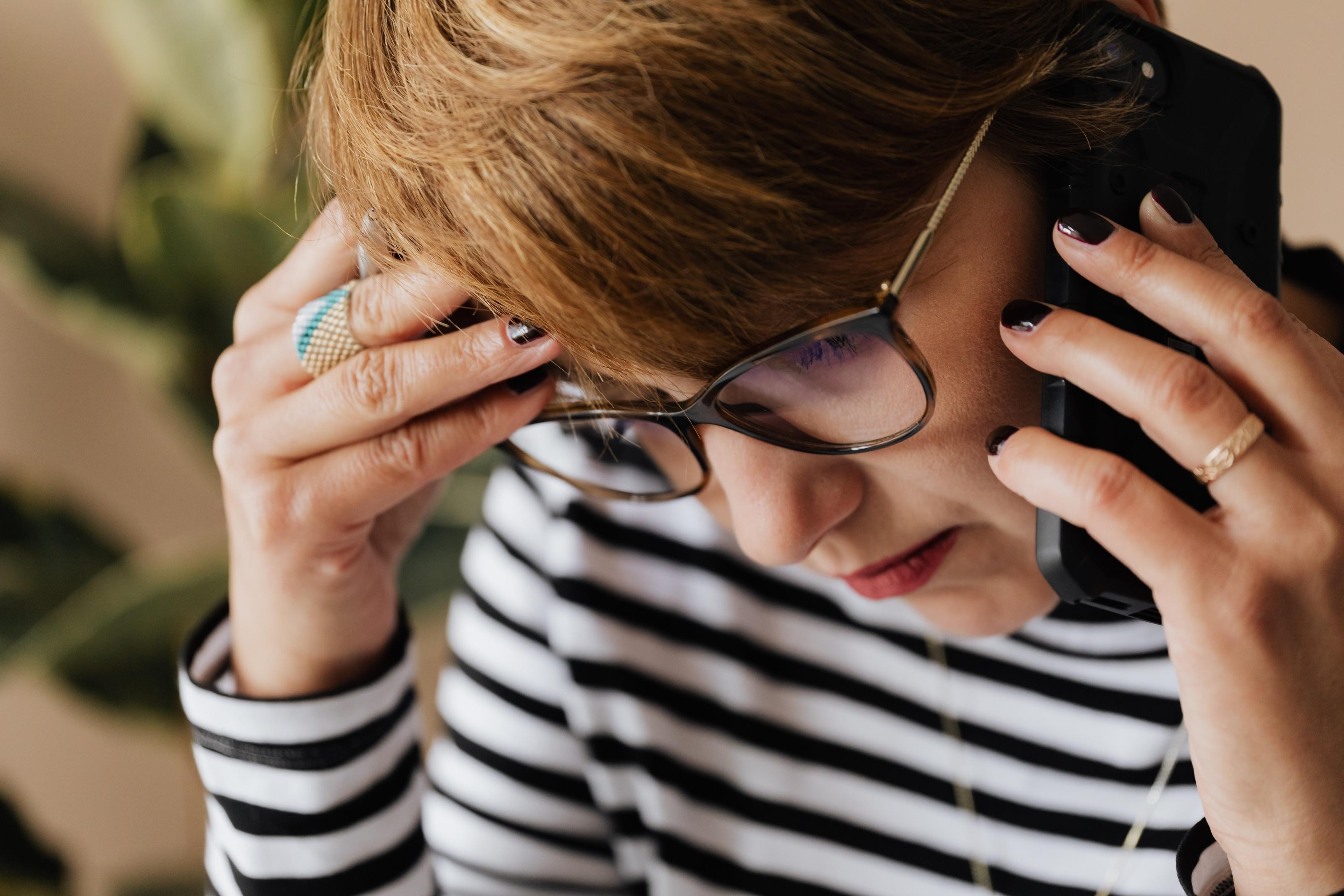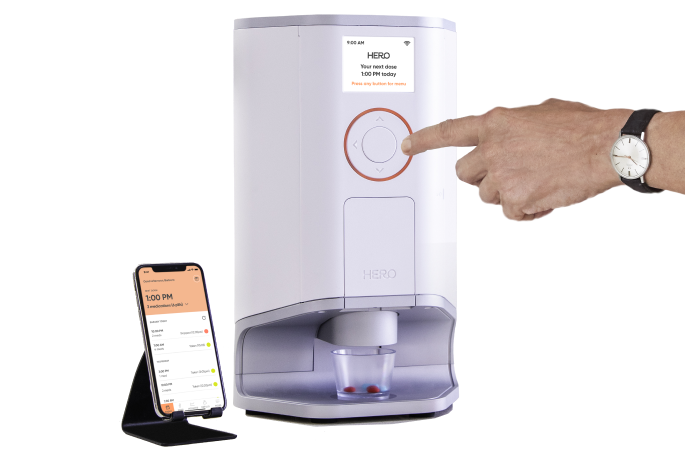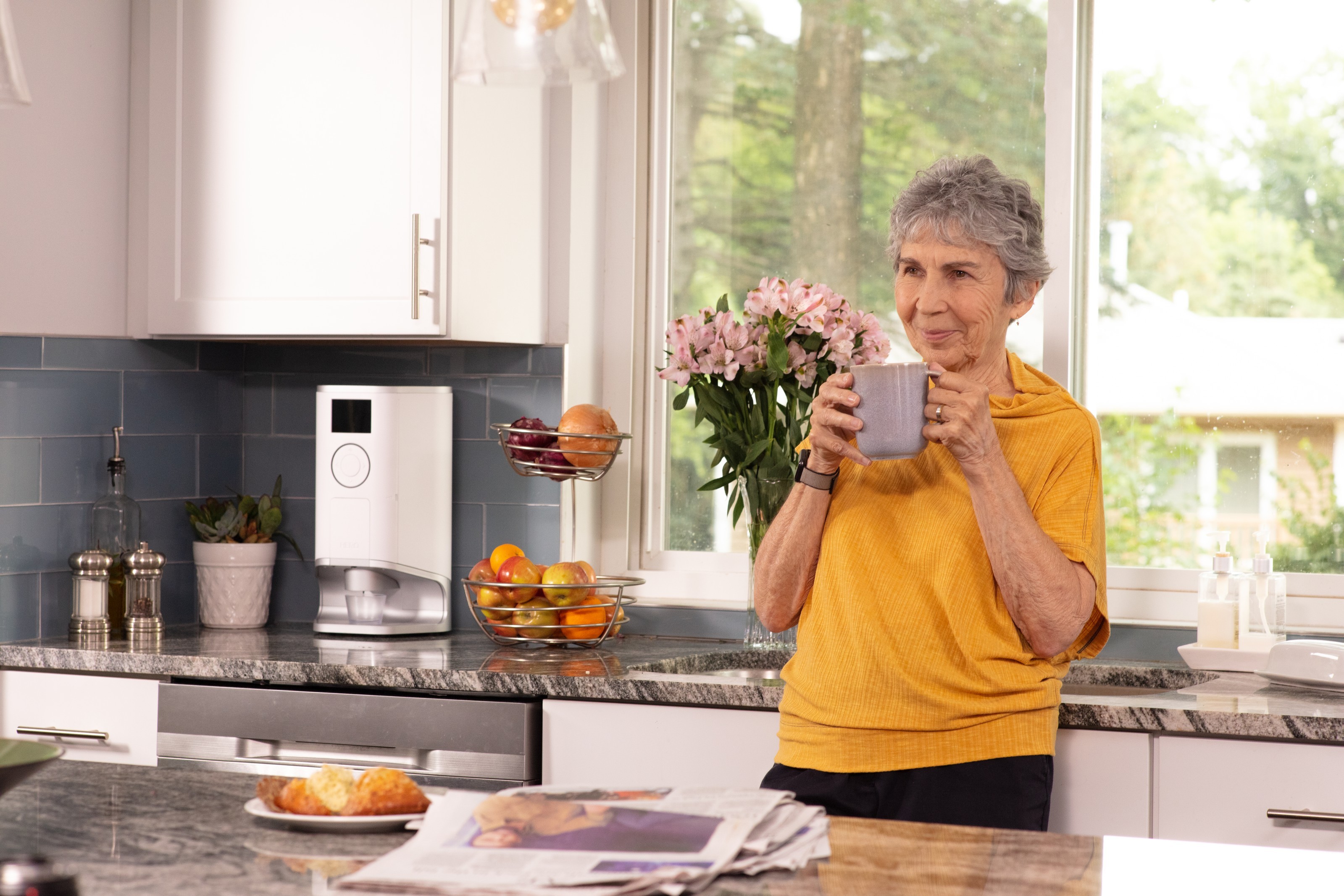What I wish I knew as a working caregiver

I was a family caregiver in the sandwich generation for over six years. While raising two children, I was simultaneously caring for aging parents. At the time, my husband was also juggling caregiver responsibilities. He was the primary caregiver for his divorced mom, who had stage 4 lung cancer. I cared for my widowed mom with multiple chronic health conditions, including COPD, diabetes, and mobility issues. Our multiple competing roles made my husband and I feel squeezed. Layer on both of our full-time jobs, and we were barely hanging on to our messy lives.
Leaving our day jobs to care for our families was not an option. I started my business, Happy Healthy Caregiver, with the intent of having a flexible career to allow me to better show up for those I loved. At the time, I desperately looked for a roadmap to navigate caregiving while working and raising children. And while I felt like we were the only couple going through this frantic juggling act, I quickly learned we were not alone in our working caregiver journey.
As it turns out, 61% of all family caregivers in the U.S. are juggling a career while caregiving for a loved one. The same percentage of those surveyed for the National Alliance for Caregiving/AARP 2020 Report Caregiving in the U.S. experienced at least one work-related impact, such as taking hours or days off work to help care for a loved one.
Reflecting back on these six years of being a working caregiver provides hindsight and perspectives that I hope current working caregivers find valuable. I have grouped these learnings into two categories: 1) what I wish I knew and 2) what helped me.
What I Wish I Knew as a Working Caregiver
I wish I knew I was called a ‘family caregiver.’ I was the primary caregiver for my mom. I wheeled her into appointments, coordinated the medications, took notes by her hospital bedside, and advocated for her health care. I would often receive advice and literature from doctors and nurses about proper wound care, instructions for breathing treatments, and tips to better manage her diabetes. Sadly, I can’t recall any health care professional asking how I was coping or sharing family caregiver resources with me. Had I known I was called a ‘family caregiver,’ I could have used these keywords in an internet browser search. Then, I would have discovered helpful local and national resources.
If the universe granted me one wish to help family caregivers, I would wish our healthcare system would introduce family caregivers to local and national resources. A health care worker handing me a list of resources to help family caregivers cope with their role would have been a goldmine.
I wish I knew more about our employee benefits. My husband and I both had full-time benefits with our employers. Neither one of our employers shared the caregiving-related benefits in our Employee Assistance Programs (EAP). It wasn’t until after my primary caregiving experience ended that I was sitting in a lunch-and-learn about our EAP and learned how anyone in my immediate family could have utilized free counseling services. I also learned that my EAP would have done the research on the local senior living communities or home health agencies that were a fit for my mom.
Since employees don’t leave their lives when they come to work (especially during this COVID-19 pandemic), some employers have started offering caregiving platforms to assist their employees. One such platform is Torchlight, which provides real-time access to strategies and solutions related to the everyday needs and challenges of caring for children and elderly loved ones.
I wish I had established boundaries with my mom sooner. Managing feelings of guilt was a constant challenge during my working caregiving years. I often felt guilty that my mom was alone and I wasn’t spending enough time with her.
In the beginning, I was spending multiple nights a week at her assisted living apartment and running errands for her on the weekend. Sometimes I would even spend the night with her, providing companionship over dinner, introducing her to new friends, and getting to know the professional staff. I just wanted her to be happy.
But spending this amount of time with mom wasn’t sustainable. I was committed to taking her to her doctor appointments to take notes and communicate with my siblings. She would complain about the early morning appointments and accuse me of making her move too fast. I explained I had a full-time job and pleaded with her to understand that even a quick appointment required a half-day off from work.
Eventually, I had to establish boundaries with mom about how much time I could devote to her beyond her medical appointments and what constituted an actual emergency. I also delegated her grocery shopping to my brother, a bachelor who could better incorporate this regular task into his weekend routine.
I wish I had connected with other working caregivers. I didn’t know many people that were in my situation, but I knew there had to be others in my mid-sized company. What a gift it would have been to talk to someone else that completely understood how I was feeling. Now, there are virtual support communities like Working Daughter. Their Caregiver Bill of Rights is something I would have posted in my office––a daily working caregiver affirmation that I was doing the best I could with the situation at the time.
What Helped Me as a Working Caregiver
Hindsight also gives me the perspective to reflect on what worked while I was in the trenches of being a working caregiver.
I prioritized work projects and leaned on my coworkers for help. During office hours, I diligently worked. I was a valued employee before my ‘spiral caregiving year’ and was lucky to work for an understanding boss. At the peak of my career as a Product Manager, I was launching a high-profile e-commerce platform. Saying ‘no’ to this significant initiative would have been a career buster for me. Lucky for me, the culture of our technology team was more conducive to working remotely, and the CIO of my department was also a family caregiver. I had built trust with my organization before caregiving, and they continued to believe that I would do my best, communicate well, and ultimately figure it out. Besides participating in this big assignment, I didn’t seek other opportunities or sharpen my saw with new skills. I was meeting expectations, and that was okay. My close working teammates knew enough about where to get ahold of me and what they could expect for response time. They also made it clear I could lean on them for help. I was lucky and realize many don’t have this flexibility, understanding boss, and supportive team in their work environment.
I was ready for anything. I never knew when a crisis with my mom (or my husband’s mom) would happen, so I had to expect the unexpected. I always took my laptop, chargers, and any pertinent notes home. I stored digital files in shared folders so others could access them if needed. I validated that I could log in to work from home and secured a mobile hotspot to work remotely from public places, like a hospital waiting room. I did everything I could think of to ensure that work could move on without me if needed.
I became intentional about my self-care. I had witnessed direct examples of what happens when our loved ones lead an unhealthy lifestyle. I couldn’t risk putting my husband and my children in a similar situation. And, I had years of life yet to live. I knew I had to figure out how to integrate self-care, or I would burn out and be no good to anyone. I continued taking my lunch breaks. I used this hour to take a walk outside, write a blog post, call a friend, or have lunch with a coworker.
I started simplifying my life. I said no to extra commitments at school or in my community. I simplified systems at home, like having one digital family calendar and starting carpools for kids’ activities. I even streamlined my wardrobe into seasonal capsules to simplify life.
I learned to ask for help. I didn’t have to do everything for my mom. I had three brothers living locally that could assist with grocery shopping, companionship, and car maintenance (we kept Mom’s car even when she couldn’t drive because it was easier for her to get in and out of). I also had two children over ten years old who learned to own their schooling, learned to cook themselves breakfast, and do their laundry.
––––––––
With medication and modern enhancements, people are living longer with multiple or chronic conditions requiring care. And every day, more employees are becoming family caregivers. In fact, one in every six employees is caring for an elderly or ill family member. My passion is to fast-track resources to these working caregivers in order to help them. The goal is not to become a master juggler of responsibilities, but rather a version of yourself that you respect and admire when you look at your laptop screen’s reflection.
Elizabeth B. Miller is a family caregiver, Certified Caregiving Consultant, and founder of Happy Healthy Caregiver. Through her speaking, consulting, and online resources, Elizabeth helps family caregivers integrate caregiving and self-care with their busy lives. She is the host of the Happy Healthy Caregiver podcast on the Whole Care Network, author of Just for You: A Daily Self-Care Journal, administrator of the Self-Care Support for Family Caregivers FB Group, and facilitator of an Atlanta caregiver support group called the Atlanta Daughterhood Circle.
Complex med schedule? We solved it.
Hero’s smart dispenser reminds you to take your meds and dispenses the right dose, at the right time.

The contents of the above article are for informational and educational purposes only. The article is not intended to be a substitute for professional medical advice, diagnosis, or treatment. Always seek the advice of your physician or other qualified clinician with any questions you may have regarding a medical condition or its treatment and do not disregard professional medical advice or delay seeking it because of information published by us. Hero is indicated for medication dispensing for general use and not for patients with any specific disease or condition. Any reference to specific conditions are for informational purposes only and are not indications for use of the device.



